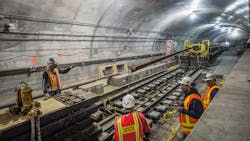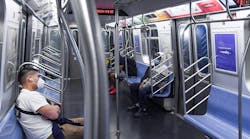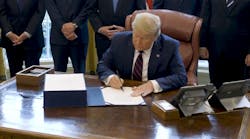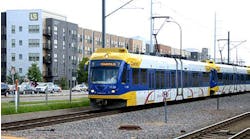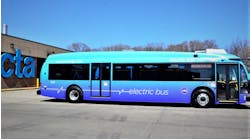There is more to the New York Metropolitan Transportation Authority (MTA) extending its hold on initiation of capital projects within the $51-billion 2020 - 2024 Five Year Capital Plan until it obtains a second Coronavirus Aid, Relief and Economic Security (CARES) Act $3.9-billion federal bailout. The continuing of MTA's "my way or the highway" position in unwilling to sacrifice some capital projects as a way to cover operating deficit is irresponsible. Delaying the $6.9-billion Second Avenue Subway Phase 2, $1.5-billion Metro North Bronx East Penn Station, suspending the one percent Arts in Transit requirement for capital projects or reducing paying millions for outside consultants rather than using in-house resources until the next 2025 - 2029 Five Year Capital Program will not adversely impact day-to-day safe and reliable service that millions of daily customers need. This makes no sense when you look at the facts. Most Federal Transit Administration (FTA) grants require a 20 percent hard cash local share. In many cases, Uncle Sam accepted toll credits instead of hard cash for the local share. The net result is that these projects are really 100 percent federally funded at no cost to the MTA. This saved the MTA $1 billion in each of the previous 2010 - 2014 and 2015 - 2019 Five Year Capital Programs. Thanks to Washington, D.C., even more savings will be true with the 2020 - 2024 Five Year Capital Program.
The MTA has $12 billion worth of FTA funding for projects and programs in active grants. What is the current balance of these grant funds not yet under contract? There is no savings to the MTA when federal dollars are left on the table unspent. The FTA in federal fiscal year 2020 has made available $1.4 billion under various formula programs to the MTA. Has the MTA submitted grant applications to access these funds to date? FTA is funding the purchase of new buses, subway cars, renovations to subway stations, along with many other capital projects and annual programs that support New York City Transit (NYCT) subway, bus, Staten Island Railway, MTA Bus (seven former NYC Department of Transportation private franchised bus operators taken over by MTA in 2005), Long Island Rail Road (LIRR) and Metro North Railroad.
MTA Chairman Pat Foye should make it clear that all federally-funded capital projects, including those not yet awarded, are exempt from his freeze and will go forward. The alternative is to take advantage of reprogramming these funds toward covering capital improvements and operating deficits as a result of COVID-19. It is difficult for the MTA to make a case for additional discretionary funding from the FTA if it doesn't use its previously approved FTA formula along with Superstorm Sandy Recovery and Resiliency funds. Eight years after Superstorm Sandy in 2012, why has the MTA not completed and spent down 100 percent of the billions provided under the Superstorm Sandy Recovery and Resiliency grant program?
Millions of Americans make due with what they have, when facing a loss of income. They delay purchasing new appliances, automobiles, central air conditioning, roof and other home improvements. We prioritize based upon risk assessment of what is needed today and what can wait until tomorrow or next year.
The MTA has promised to commit $6.5 billion worth of prior planned capital program work in 2020 and $2.3 billion in 2021. This is supposed to complete the initiation of all capital projects and programs carried over from the $29 billion 2010-2014 and $32 billion 2015-2019 capital plans. How will it coordinate management for this $8.8 billion worth of old capital projects with those from the new $51 billion 2020 - 2024 Capital Plan? Add $8.8 billion in carryover projects with $51 billion promised under the new $51 billion 2020 - 2024 Five Year Capital Plan, even if it was fully funded. Based upon past history of previous Five Year Capital Plans, it is doubtful the MTA can successfully complete $59.8 billion worth of capital projects over the next five years. The MTA has an asset management plan for NYCT subway, bus, Staten Island Railway, MTA Bus, LIRR and Metro-North for agency, by category. These categories includes bus and commuter rail fleet, stations including elevators to meet Americans with Disabilities Act, and escalators, track and switches, signals and interlockings, communications, line structures, as well as painting, power substations, yards and shops and supervisory vehicles.
Billions in capital projects scheduled for award and notice to proceed in 2023 may have to be delayed two years until the first year of the next 2025 - 2029 Five Year Capital Plan. Even more planned for in 2024 may have to be delayed until 2025.
MTA Management is paid the big bucks to make these difficult decisions today, not next year. Commuters, taxpayers, transit advocates and elected officials should ask for no less.
-------------------------------------
Larry Penner is a transportation historian and advocate who previously worked 31 years for the Federal Transit Administration Region 2 NY Office. This included the development, review, approval and oversight for grants supporting billions in capital projects and programs on behalf of the Metropolitan Transportation Authority, New York City Transit bus and subway, Long Island Rail Road and Metro-North Railroad, MTA Bus and NYC Department of Transportation.
